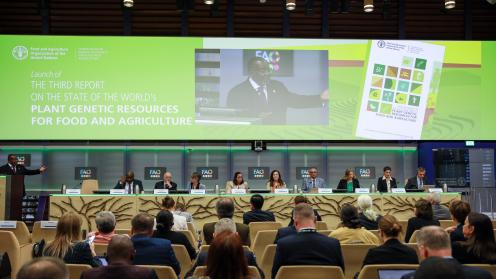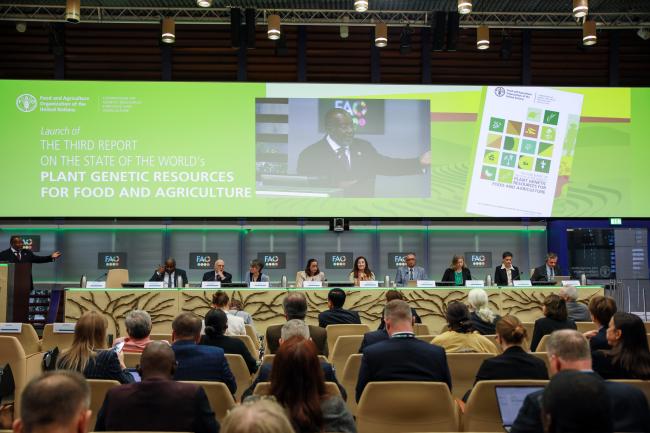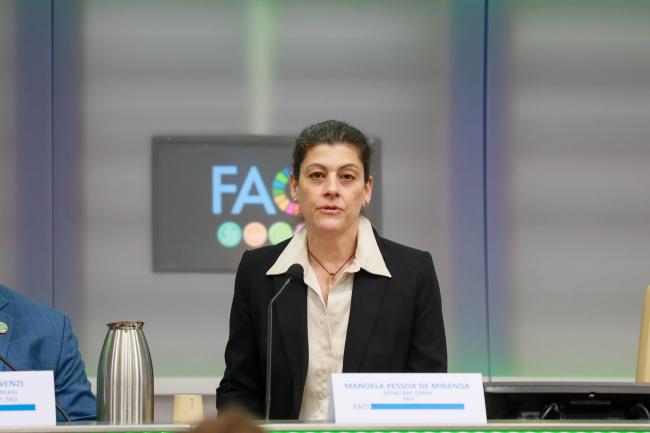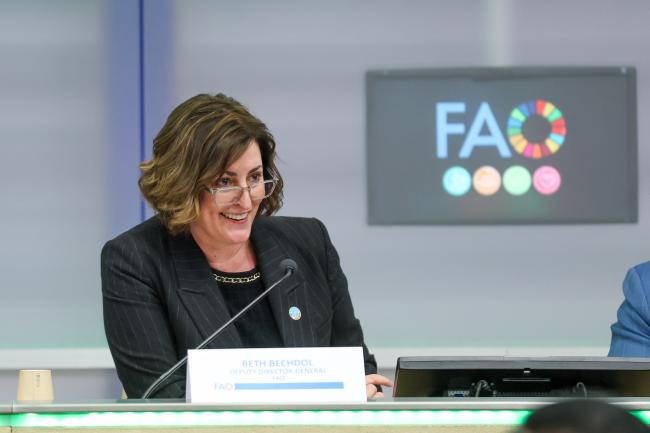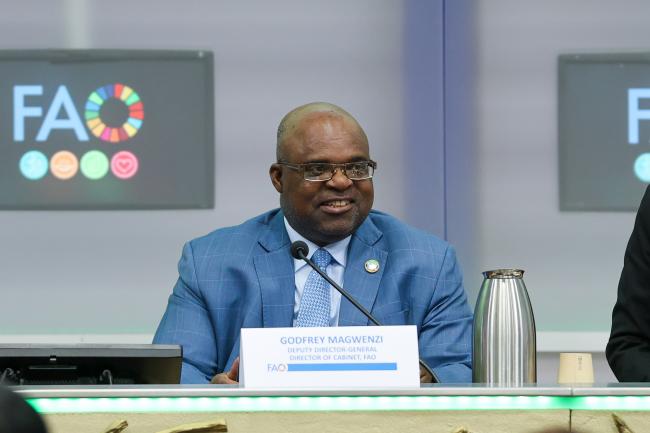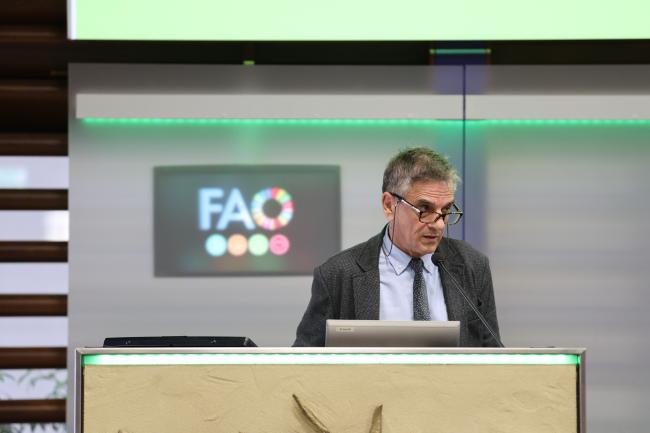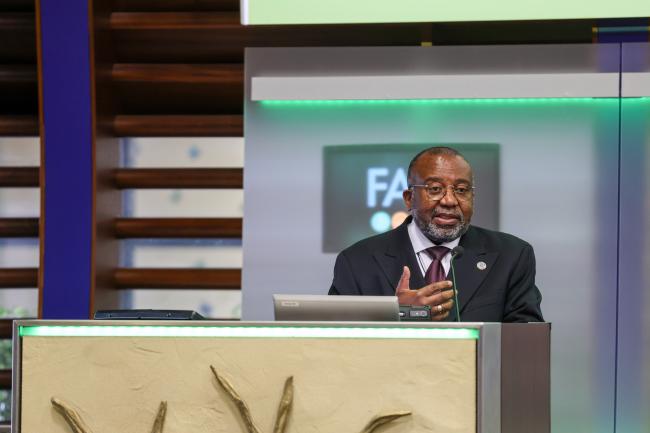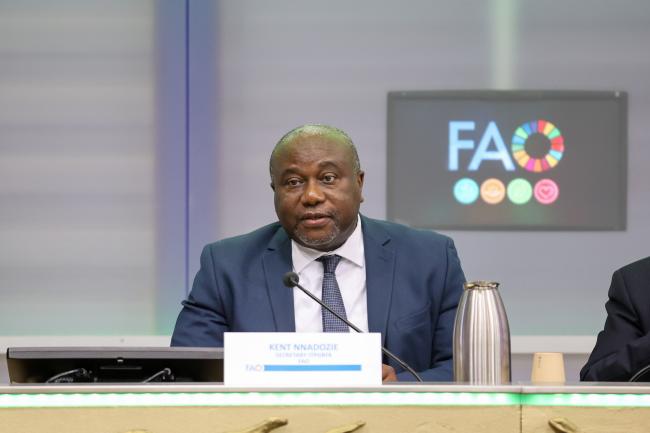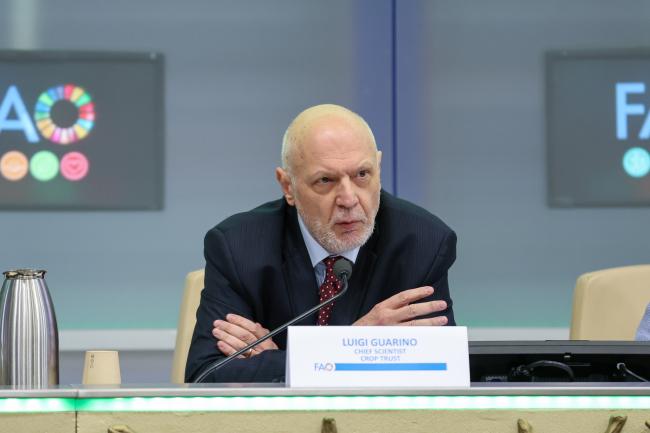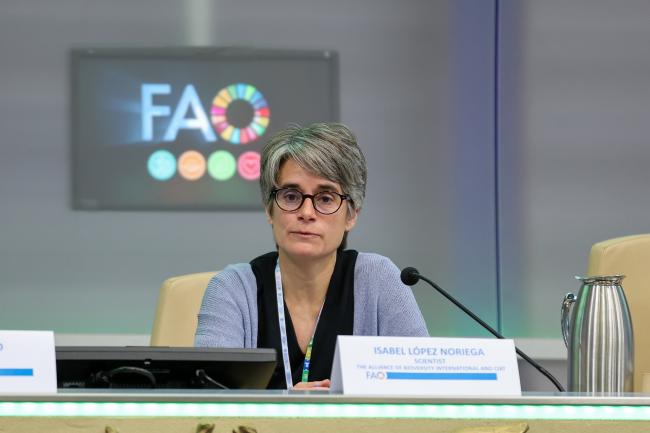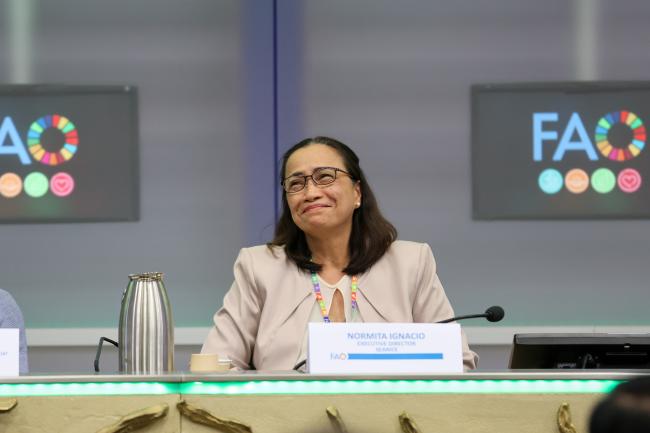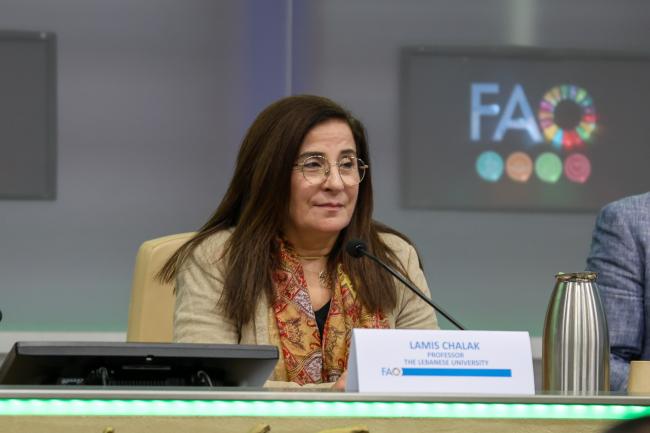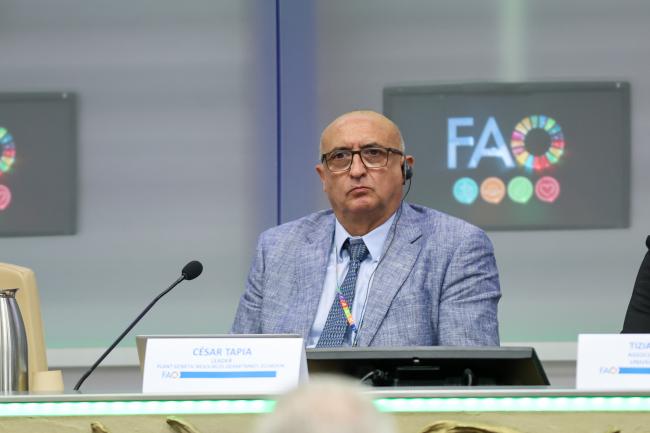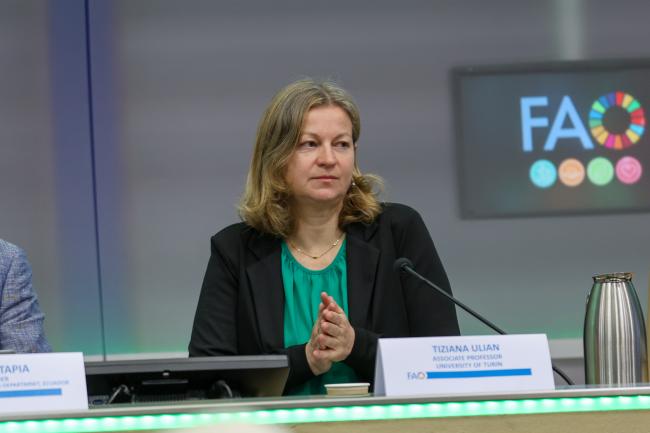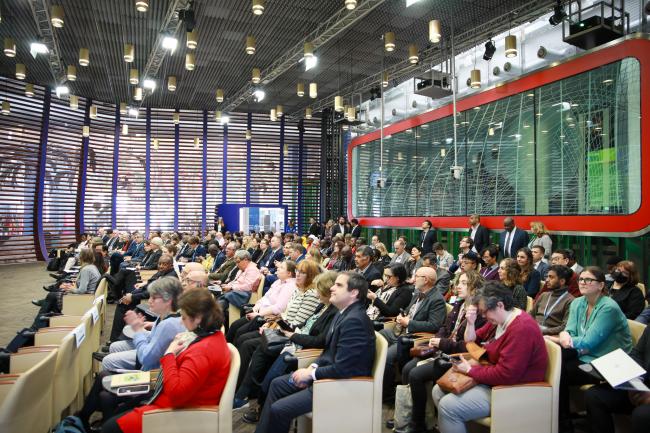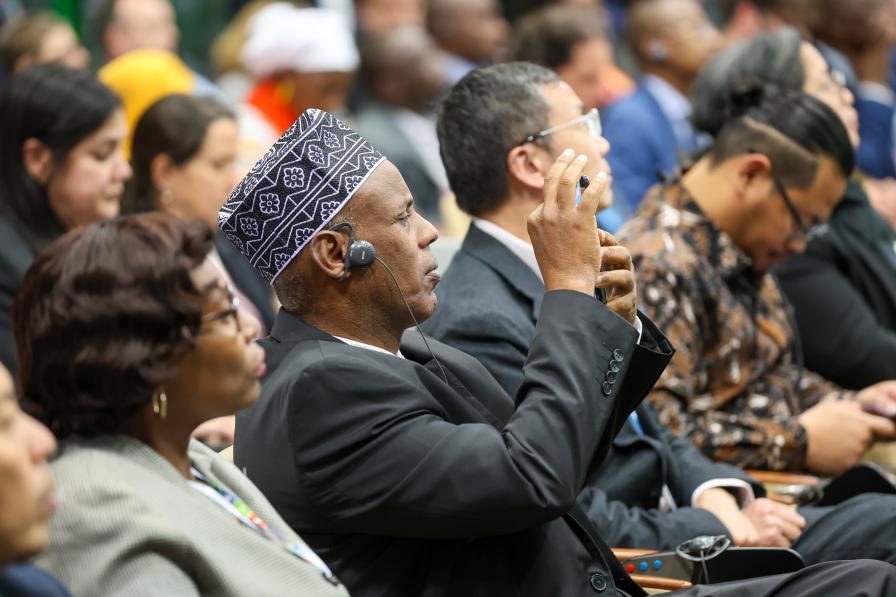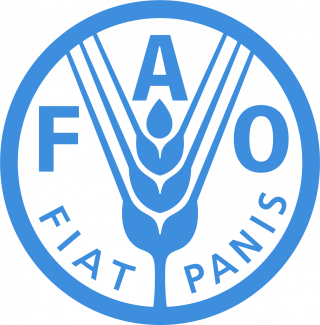The Third Report on the State of the World’s (SOW) Plant Genetic Resources for Food and Agriculture (PGRFA) was launched at a side-event during the Twentieth Regular Session of the Commission on Genetic Resources for Food and Agriculture (CGRFA 20). This report builds on the First and Second reports launched in 1996 and 2010 respectively and provides a comprehensive assessment of global conservation and sustainable use of PGRFA. The Third Report focuses on issues including on-site conservation and off-site preservation and emerging challenges such as climate change and biodiversity loss. CGRFA 20 is expected to consider the findings of the Third Report, which will be a basis for the review the Second Global Plan of Action for Plant Genetic Resources.
Manoela Pessoa de Miranda, Secretary, CGRFA, moderated the event. In opening remarks, Beth Bechdol, Deputy Director-General, FAO, said the SOW reports on PGRFA have over the years generated global policy responses including the 1996 Global Plan of Action for the Conservation and Sustainable Utilization of PGRFA. She referred to plant genetic resources as our “insurance policy for global food security,” emphasizing that “once extinct, a plant variety is lost forever.”
Godfrey Magwenzi, Deputy Director-General, FAO, recalled that the First Report played a crucial role in the establishment of the International Treaty on Plant Genetic Resources for Food and Agriculture (ITPGRFA). He added that the completion of the Third Report does not signify an end but opens an avenue for the PGRFA community to identify priority areas and activities, as well as for building awareness, research, collaborations, and partnerships for conservation and sustainable use of PGRFA.
Stefano Diulgheroff, FAO Information Management Officer, presented the findings of the Third Report. Diulgheroff noted that, thanks to PGRFA surveys carried out in the wild and on-farm in about 80 countries, knowledge on PGRFA has increased since 2012. He highlighted that about 42% of surveyed species were reported as threatened in at least one survey. The report highlights needs for: enhancing community seed banks; cooperation with breeders; genebanks; and strengthening participatory variety selection and plant breeding in order to manage on-farm crop diversity. It also highlights an increase in demand for seed aid to restart crop production due to disasters such as climate change, pests, diseases, and war. Safety duplication among seed collections has increased over the years, which has enhanced safeguarding PGRFA ex situ. However, there is a need to ensure long-term financial stability for planning and adequate staffing of genebanks, adoption of genebank management information systems, and long term cryostorage back up for species for vegetatively propagated species. The report equally calls for building sustainable institutional and human capacities, effective information systems to ensure informed decision-making.
During the panel session, stakeholders representing academia, seed preservation and genebank management experts, and governments elaborated on these findings and shared perspectives on key issues in PGRFA conservation and sustainable use. Chikelu Mba, Deputy Director, Plant Production and Protection Division (NSP), FAO, moderated the discussions.
Kent Nnadozie, Secretary, ITPGRFA, noted that the SOW PGRFA reports provide crucial evidentiary foundation for decisions taken by the ITPGRFA, thus reinforcing the Treaty’s role in international governance of PGRFA. He reported that the eleventh session of the ITPGRFA governing body, to be convened in Lima, Peru in November 2025, will deliberate on the findings of the Third Report.
Luigi Guarino, Chief Scientist, Crop Trust, said the report is both a health check and a call to action for the PGRFA community. Noting advances in information systems, he called for progress in utilizing the Digital Object Identifier (DOI) for seeds and plant accessions, to among others, facilitate data sharing. He further lauded progress in supporting the perpetuation of genebanks through, inter alia, the Crop Trust’s Endowment Fund and the Emergency Reserve for Genebanks.
Isabel López Noriega, Scientist, Alliance Bioversity International and CIAT, highlighted the value of enhanced cooperation, particularly in sustainable use, pre-breeding and breeding programmes. She urged collaboration to address technological gaps to ensure all countries can produce and make use of PGRFA data in a meaningful manner. She also called for the foreseen revision of the Global Plan of Action for Plant Genetic Resources to pay greater attention to this.
Normita Ignacio, Executive Director, SEARICE, said that in spite of progress highlighted, farmer seed systems remain ignored and marginalized, and urged their inclusion in national plant breeding programmes. She highlighted negative impacts such as reduction of on-farm seed production and circulation.
Discussing the impacts of disasters on PGRFA, Lamis Chalak, Lebanese University, noted the current international emergency provision of seeds focuses on limited varieties of crops from international sources. She called for restoring a diverse range of pre-disaster food crop varieties adapted to local climatic and growing conditions.
César Tapia, Leader, Department of Plant Genetic Resources, Ecuador, said the increase in country and stakeholder participation in preparation of the SOW reports has increased their accuracy and representativeness. He lauded the Third Report for providing a road map, including on capacity development. He called for strengthening wild species conservation and sustainable use, noting their key role in providing biodiverse diets.
Tiziana Ulian, University of Turin, said the finding that a large incidence of surveyed taxa were found at risk links closely to similar findings regarding biodiversity loss. She emphasized that several wild edible plants are at risk due to global biodiversity loss, adding that wild food species losses have a cultural and ecological dimension due to associated local knowledge such as medicinal value, and ecosystem services.
In her closing remarks, event moderator Miranda noted that CGRFA 20 will consider the findings of the Third Report. She urged participants to engage with the report to transform its recommendations into actions required for PGRFA conservation and sustainable use.
Organizers: FAO
Contact: Ella Wooden | Ella.Wooden@fao.org
For more info: https://www.fao.org/cgrfa/cgrfa-20/en
To receive free coverage of global environmental events delivered to your inbox, subscribe to the ENB Update newsletter.
All ENB photos are free to use with attribution. For this event, please use: Photo by IISD/ENB | Mike Muzurakis
